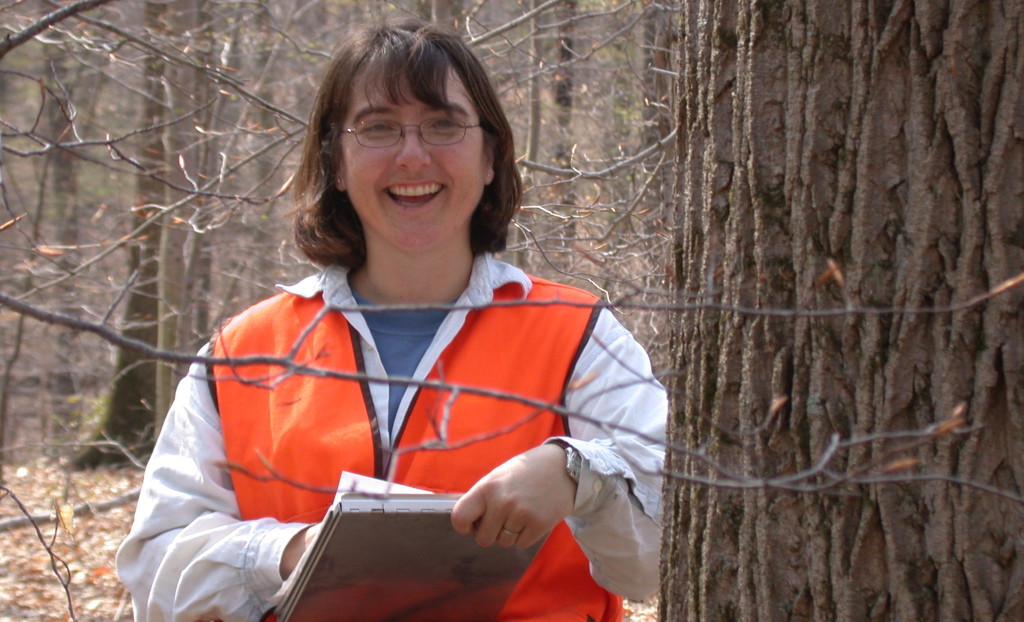
Ecologist Dawn Miller surveys trees in a SERC forest. (SERC)
by Kristen Minogue
The Smithsonian has a new resolution for 2017: Earth Optimism. This is the year the Smithsonian is celebrating environmental success stories, and shifting the focus to how we can fight battles to save species and preserve our planet—and win. Despite breaking a wide swath of climate records, 2016 gave us reasons for optimism as well. In our 2016 Year in Review, we’ve pulled out the most encouraging stories and discoveries at the Smithsonian Environmental Research Center from the previous year. Here are the top 10 that make us hopeful about the planet’s future:
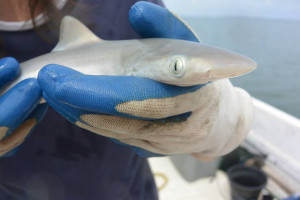
Juvenile sharpnose shark. (Photo: Chuck Bangley)
Chuck Bangley, Matt Ogburn and the biologists of SERC’s Fish and Invertebrate Ecology Lab journeyed along the Atlantic this summer and fall to tag sharks along the East Coast, to understand their migrations and unearth clues to protecting them.
2. There’s hope for oysters on both sides of the country.
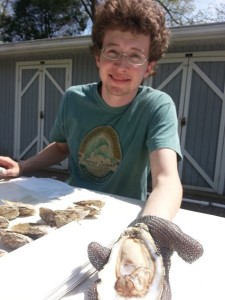
Andrew Keppel discovered baby oysters can bounce back from acidification and low oxygen cycles. (Rebecca Burrell/SERC)
3. There’s hope for river herring too.
Using an underwater sound camera, Fish and Invertebrate Lab ecologists did the first census of river herring on the Choptank River since 1973, and tracked an estimated 1.3 million migrating to their spawning grounds. Not a bad number, and it gives conservationists a much-needed baseline to determine the best ways to protect the imperiled fish.
4. Trees can fight crime, make coffee grow better and even give business a boost. And speaking of business…
5. It is possible to live in a sustainable city.
Ask urban ecologist Steward Pickett, who launched the Baltimore Ecosystem Study 20 years ago.
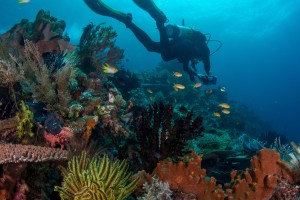
Underwater divers like this one in Raja Ampat, West Papua, discovered biodiversity can empower fish communities to resist climate change. (Rick Stuart-Smith)
6. Biodiversity can protect the world’s seafood from climate change.
After divers did more than 4,000 underwater surveys in 44 countries, ecologists discovered fish in more diverse communities are better able to resist rising temperatures and sharp temperature swings. As SERC’s MarineGEO director Emmett Duffy put it, “Biodiversity is more than a pretty face.”
7. Biodiversity may be able to make food webs in forests more resilient too.
We’re still analyzing data from the army of clay caterpillars we deployed this summer to find out.
8. Scientists solved a mystery of disappearing pollution.
After two decades, SERC ecologist Tom Jordan and a team of researchers discovered how nitrogen pollution in a Choptank watershed was vanishing into thin air.
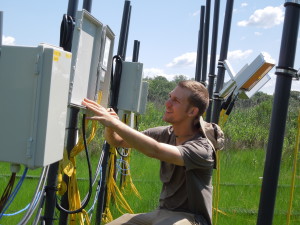
Joe Dawson helped set up the new global warming experiment on SERC’s “wetland of the future.” (SERC)
9. Scientists can look into the next century of global warming on the “wetland of the future.”
On SERC’s Global Change Research Wetland, ecologists are heating up wetland soils to see how global warming could play out in the year 2100. It’s not all one dark prophecy.
10. Saving endangered orchids just got a little easier.
Orchids need special fungi to grow, and with an assist from new DNA technology, scientists found those fungi in more places than anyone suspected.
Do you have stories of Earth Optimism? We’d love to hear them! Share them as comments or on Facebook and Twitter (@SmithsonianEnv). #EarthOptimism


We love reading some good news about the environment. Let’s all keep working hard to protect the beautiful natural resources that we love.
Thank you for the good news!
I trust the Trump presidency and its science-denying minions won’t affect the Smithsonian’s coverage of climate change and other environmental issues.
Some good news for hope. More regulations need to be done before it’s too late. There is a huge water crisis in some parts of the world.
http://water.org/water-crisis/
Thank you for this informative post. ingilizce sayılar